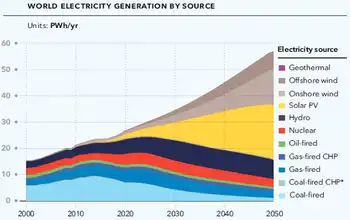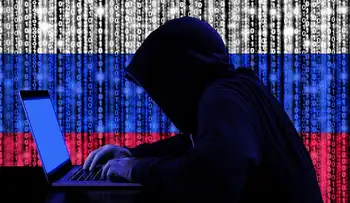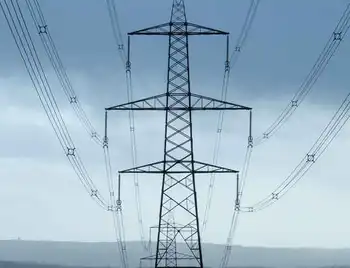India passes nuclear deal
NEW DELHI, INDIA - IndiaÂ’s Parliament approved a final, critical piece of a long-delayed landmark civil nuclear agreement, a pact regarded as a cornerstone of a Bush-era effort to transform the relationship between the United States and the worldÂ’s largest democracy.
But even as supporters praised a historic victory, the end result is probably not what the United States had hoped for, nor does it seem likely to signal a new era in relations between the United States and India. Indeed, some analysts say the compromises needed to move MondayÂ’s legislation through IndiaÂ’s contentious Parliament could undermine the practical impact of a political, diplomatic and economic accord that took years to negotiate.
With President Obama scheduled to make his first visit to India in early November, the governments in both countries are trying to strengthen a relationship sometimes described as a natural and strategic alliance of democracies. But drawing closer has proved complicated as differences remain on issues like trade and climate change, as well as how to effectively deal with Pakistan.
The nuclear issue, putatively about IndiaÂ’s future, has set off weeks of bitter political debate in New Delhi and tapped into Indian nationalism and public suspicion of foreign corporate interests, while also dredging up a very different chapter in the countriesÂ’ relations: the 1984 Union Carbide industrial disaster at Bhopal, which killed thousands. Prime Minister Manmohan Singh, accused of toadying to the United States, appeared before the lower house of Parliament to deny that his allegiance was anywhere but with India.
“We kind of assume that we will be the dominant partner in any partnership,” said Teresita C. Schaffer, a former ambassador to Sri Lanka who also served as an American diplomat in India. “India does not make that assumption.”
Mr. Singh, who announced the nuclear deal in a 2005 joint statement with former President George W. Bush, has an expansive vision of the role of nuclear energy as a power source for IndiaÂ’s future. For decades after its 1974 nuclear test, India had refused to sign the Nuclear Nonproliferation Treaty and was subjected to a three-decade American moratorium on nuclear trade. But the deal opened a controversial back door for India to join the nuclear club while also opening an Indian market estimated at $150 billion to foreign energy companies once blocked by the moratorium.
Now the question is whether foreign or even Indian energy companies will be willing to come in to provide the expertise India needs to expand, because of the liability guidelines codified in the legislation in case of a nuclear accident. Existing international conventions place liability solely with the operator of a nuclear reactor while immunizing suppliers. But the Indian law bucks international norms and makes suppliers potentially liable, too. Indian industrial groups have already expressed reservations, while analysts warn that many private foreign energy companies may now decide not to take part.
“This makes the fruits of the Indo-U.S. deal go to waste,” said G. Balachandran, a security analyst in New Delhi with a specialty in nuclear issues. He added: “It may well be the end of civil nuclear growth in India.”
India currently has 19 nuclear reactors, and the government wants to attract foreign and domestic suppliers to build more. The liability legislation was critical, because most private foreign energy companies need a legal framework outlining their risks and potential liabilities before entering a market. International conventions largely abide by a principle in which liability is “channeled” strictly to the operator of a reactor rather than the long list of suppliers.
The legislation still requires the signature of the president, a ceremonial gesture that is virtually guaranteed. During the debate before the vote in the upper house of India’s Parliament, the government’s point man, Prithviraj Chavan, said the law would make India the sole country in the world that placed some liability on suppliers. “The suppliers are not happy,” Mr. Chavan said.
The government originally proposed legislation more palatable to suppliers, but opposition parties had demanded tougher provisions, particularly after the ghost of the Bhopal disaster inflamed the debate.
In Bhopal, thousands of people were killed after a leak in December 1984 at the Union Carbide pesticide factory unleashed a poisonous cloud over the city. India sought $3.3 billion in damages from Union Carbide, since purchased by the Dow Chemical Company, but would later settle for $470 million. Much of the money has not been distributed, and many victims have gotten only nominal payments.
In June, IndiaÂ’s court system announced light criminal sentences against eight former executives of Union CarbideÂ’s Indian subsidiary, one of whom had since died. Meanwhile, Warren M. Anderson, the former chairman of Union Carbide, has never been prosecuted, and he still lives in the United States, which has declined to extradite him. After the issue resurfaced, the public was outraged, and the Bhopal tragedy again dominated the Indian media.
Then on August 19, an Indian news channel reported that a senior American official had cautioned a top Indian official in an e-mail that the “noise” over the Dow Chemical Company could hurt investment in India. The official, Mike Froman, a deputy national security adviser, issued a statement denying that he was making any sort of threat — but the episode further inflamed the nuclear debate.
The Bharatiya Janata Party, or B.J.P., the main opposition, insisted on language that left open the possibility that suppliers could be sued in the case of an accident.
Arun Jaitley, the B.J.P. leader in the upper house, scoffed at the notion that foreign energy companies would stay away from India. He said India’s appetite for new nuclear reactors would create a “buyer’s market” and the law would provide leverage for the government. He said the law abided by the principle of channeling by holding only the operator liable for claims from accident victims. The difference, he said, is that the law allows an operator to sue a supplier under certain circumstances.
Had the law not been changed, he said it would have been “a suppliers’ immunity law.”
But Indian business groups and even the governmentÂ’s own Nuclear Power Corporation, which operates the existing reactors, have warned that such liability language was problematic and could dissuade private suppliers. India already has a separate bilateral agreement with Russia, and liability is less central an issue since Russian companies are state-owned. Yet Russia also has expressed concern. Private companies in other countries, including France, which also has a bilateral agreement with India, could be more exposed. And Japan, which is also negotiating a nuclear agreement with India, is likely to raise the issue since Japanese companies are heavily involved in the industry.
“It really increases the exposure of Indian and international suppliers,” said Ashley Tellis, a former American diplomat involved in negotiating the framework of the United States-India deal. “The net effect is that it is going to restrict the prime minister’s options and it could even be fatal to his vision of expanding the nuclear power sector in India.”
Related News

Global electric power demand surges above pre-pandemic levels
LONDON - Carbon dioxide emissions from the global electric power sector surged past pre-pandemic levels to record highs in the first half of 2021, according to new research by London-based environmental think tank Ember.
Electricity demand and emissions are now 5% higher than where they were before the Covid-19 outbreak, which prompted worldwide lockdowns that led to a temporary drop in global greenhouse gas emissions. Electricity demand also surpassed the growth of renewable energy, the analysis found.
The findings signal a failure of countries to achieve a so-called “green recovery” that would entail shifting away from fossil fuels toward renewable energy to…




